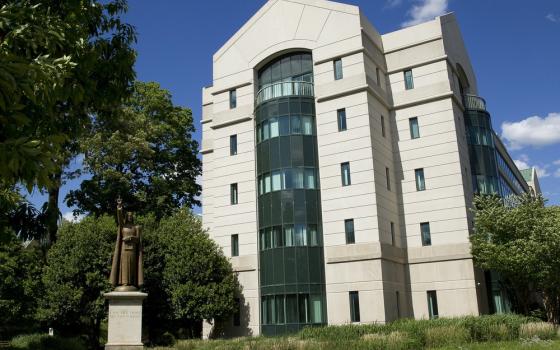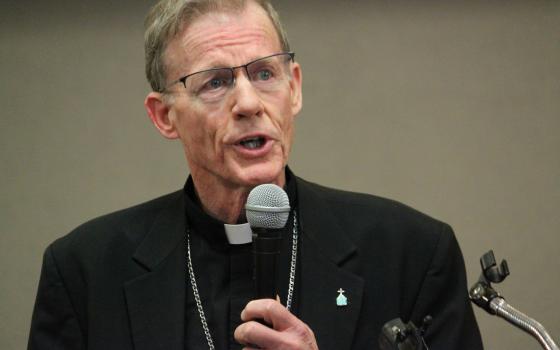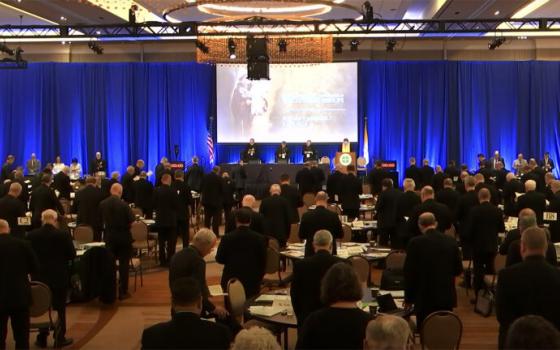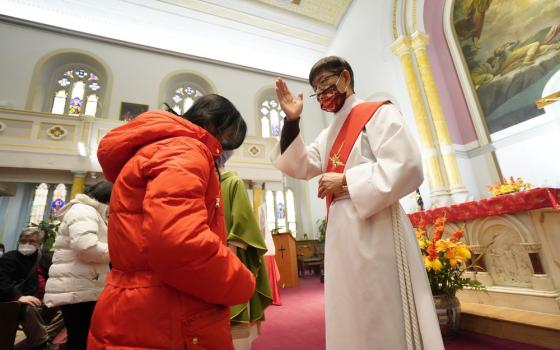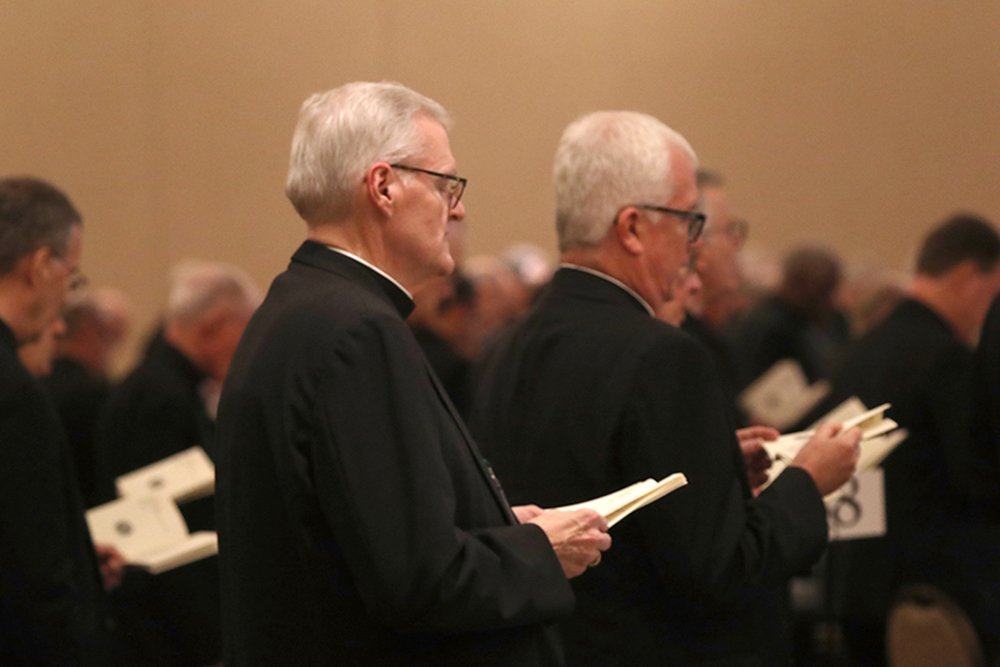
Bishops pray June 13, 2024, at the U.S. Conference of Catholic Bishops' spring plenary assembly in Louisville, Kentucky. (OSV News/Bob Roller)
The bishops have spoken: The Catholic Campaign for Human Development is not going away.
As my colleague Brian Fraga noted in his report yesterday, the president of the bishops' conference, Archbishop Timothy Broglio, told a press conference "in all the discussions, the bishops' ongoing commitment to the vital work of fighting poverty was clear."
Several bishops told me that in the executive session where the Catholic Campaign for Human Development was discussed, the support for the program was overwhelming. Springfield, Illinois, Bishop Thomas Paprocki intervened to suggest it was time to sunset the program, and his sentiments were echoed by Kansas City, Kansas, Archbishop Joseph Naumann. But Cardinal Joseph Tobin of Newark gave a powerful endorsement of the work of the Catholic Campaign for Human Development and every other speaker echoed Tobin.
The support for the anti-poverty program was so strong, it prompted one bishop to characterize the moment as "a turning point." The critics of the Catholic Campaign for Human Development had overreached, misjudging the tenor of the body of bishops as a whole. Let's hope the bishops' conference keeps turning.
Advertisement
The bishops cannot rest. There are many ways to kill a program. One person familiar with the workings of the Catholic Campaign for Human Development asked how the bishops would ensure that the implementation of certain changes — including which bishops' conference committee will handle the campaign's annual collection — doesn't destroy the strategic partnerships that make the program's work effective. It is a good question and one the bishops need to keep an eye on. The staff of the conference is traditionally responsive to the desires of the full body, but there are still stark divisions within the conference.
If opposition to the Catholic Campaign for Human Development had not reached the conference's leadership, at both the level of staff and of the executive committee, would the discussion of the campaign's future even need a slot on the agenda? And why was it necessary to hold this discussion in executive session — which only serves to mute the bishops' overwhelming support for the Catholic Campaign for Human Development's work because it was not public?
These questions remain as the bishops conclude their meeting later today. My wrap-up will look at these and other questions on Monday.




